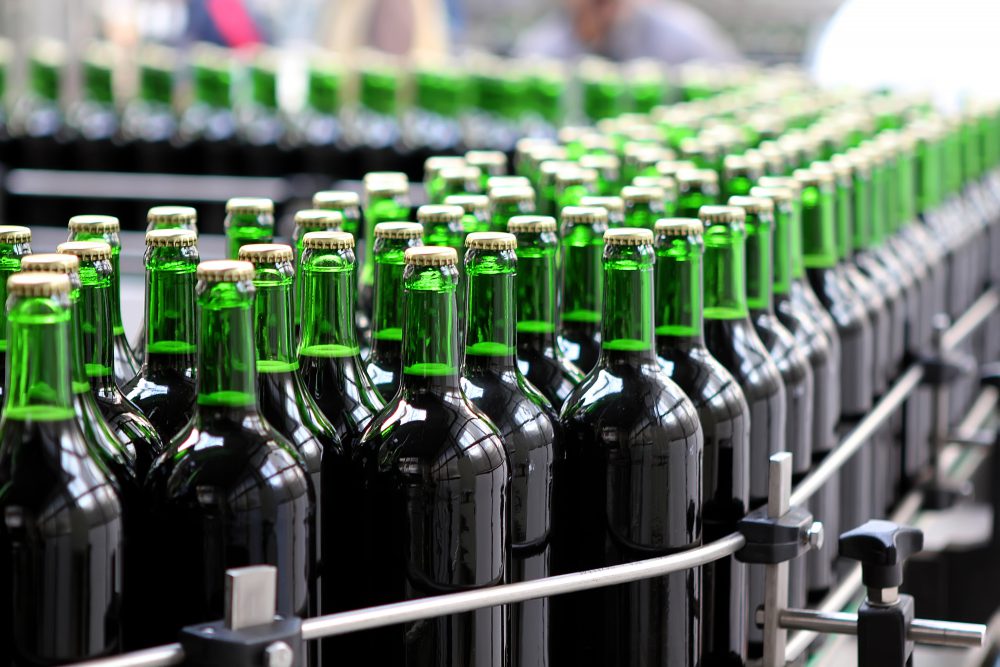The global alcoholic beverage market is growing, and liquor is gaining popularity over wine and beer. However, the logistics of producing in this multibillion-dollar industry are unlike any other food and beverage sector, especially if you’re looking to expand your product line.
Manufacturing and processing spirits or liquor comes with its own unique challenges in terms of:
- Quality control
- Streamlining operations
- Worker safety
I’ve discovered these key issues come up time and again on these projects. Let’s break down what you need to know.
Quality Control for Spirit Manufacturing
Many spirit manufacturers are adapting to a new trend in consumer demand: the desire for more variety and specialized products. In fact, the global specialty spirits market is expected to surpass 35 billion liters in production by 2020. (That’s enough to fill 14,000 olympic swimming pools.) Millennials — those born between 1981 and 1997 — are driving this trend, with increased demand for products like flavored malt beverages, “hard” sodas and ciders.
However, expanding your SKUs as a spirits manufacturer isn’t as easy as it is in other food and beverage sectors. Of course, the “spirits” category encompasses a number of products that have strong, unique flavors such as:
- Gin
- Rum
- Tequila
- Vodka
- Whiskey
Therefore, manufacturing different spirits in the same plant could create quality control issues if not done properly.
Dark liquors tend to be more flavorful than clear liquors, so processing both on the same lines can be problematic. For example, the equipment in a tequila facility likely has residual tequila hiding in less than obvious spots. If you then introduce vodka into your product offerings and bottle both under the same roof, you introduce the potential for cross-contamination that can affect product taste.
Proper planning and establishing dedicated equipment or a rigorous clean-in-place (CIP)/clean-out-place (COP) program is key to successfully expanding your spirit SKUs while maintaining product quality.
Streamlining Operations as a Liquor Distributor
Many spirit manufacturers don’t own a distillery, but instead buy high-proof alcohol in bulk from a third party that is often based in a different location or even a different country. For example, Bacardi produces most of its rum in Puerto Rico but ships it to the U.S. for bottling and mixing. (In fact, that bottling facility supplies 100 percent of the Bacardi rum consumed in the U.S. and is located in Jacksonville, Florida, home of Stellar’s global headquarters.)
Streamlining your operations is crucial in this common processing structure, because one simple mistake can be costly.
The upward trend of specialty alcoholic drinks means more flavors at processing and bottling plants. Unlike bottling a single type of alcohol, producing flavored spirits requires specific additional ingredients. Adding the wrong spirit or flavor to a mix can mean a major hit to your bottom line. Not only are you throwing away spoiled product, but you’re losing money on the cost it took to ship the distilled alcohol to your plant. After all, a single rail car of tequila can cost upwards of $40,000.
Plus, introducing more SKUs into your spirit manufacturing facility can create other logistical issues. I often hear plant owners express the same challenges when expanding their product offerings:
- How many storage tanks are enough? Too many?
- How can we efficiently produce the right number of SKUs?
- How do we eliminate storing so many high-proof alcohol bottles?
- How can we maximize our scheduling to make distribution most efficient?
Many of these snags can be avoided with a third-party assessment to determine how to best streamline operations. Growth and adapting to consumer demand is a good thing, but of course the goal is to do so in a way that saves money and results in a quality product.
Worker safety
Perhaps the biggest challenge when it comes to spirit manufacturing is worker safety. More so than other sectors, spirit manufacturing is truly a cross between beverage production and chemical handling.
Facilities must have proper ventilation to ensure flammable alcohol fumes are controlled and removed from work areas. We’ve seen examples of how dangerous these distilleries and processing facilities can be, so it’s crucial to adhere to guidelines laid out by the Distilled Spirits Council of the United States (DISCUS) and the Occupational and Safety Health Administration (OSHA) when planning and operating your facility.
For example, a key best practice is to locate air intakes low to the ground. Since alcohol fumes are heavier than air, this ensures flammable fumes are removed from work spaces efficiently. The bottom line: avoid buildup of flammable vapor and eliminate the possibility for sparks that could ignite them.
If you’re looking to design or build a new plant, or if you’re a plant owner looking to expand your current offerings, you can take advantage of the growing spirits market. The key is to have dedicated equipment and a strategic plan that considers quality control, streamlined operations and worker safety.
Looking for more info on improving your spirit manufacturing facility? Email me at foodforthought@stellar.net.




